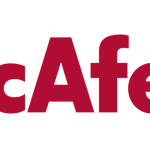- Domeniu: Software
- Number of terms: 9143
- Number of blossaries: 1
- Company Profile:
A computer program file capable of attaching to disks or other files and replicating itself repeatedly, typically without user knowledge or permission. Some viruses attach to files, so when the infected file executes, the virus also executes. Other viruses sit in a computer’s memory and infect files as the computer opens, modifies, or creates files. Some viruses display symptoms, others damage files and computer systems, but neither is essential in the definition of a virus; a non-damaging virus is still a virus.
Industry:Internet
A specific type of script file in UNIX environment shells. Common variants include scripts for BASH and CShell, which are much like DOS batch files.
Industry:Internet
A program or code segment written in the application’s internal macro language. Some macro viruses replicate or spread; others simply modify documents or other files on the user’s machine without spreading, such as Trojans.
Industry:Internet
Advanced techniques that detect Web 2. 0 threats with a cross-protocol reputation system, real-time assessment (without waiting for a signature), and intent-based anti-malware protection. Standard web defenses depend on category-based filtering and signatures to protect users. These worked with Web 1. 0 threats launched from static websites that could easily be categorized and tracked. Because of the subtle vulnerabilities of Web 2. 0 sites, the increased use of encryption, and the deliberate versioning of malware to avoid detection (see also polymorphic virus) (anchor/target link to this location), people using only Web 1. 0-style technologies are not well protected today.
Industry:Internet
A preemptive approach to host and network security used to identify and quickly respond to potential threats. An IPS monitors individual host and network traffic. An attacker might carry out an attack immediately after gaining access, so an IPS can take immediate action as preset by the network administrator.
Industry:Internet
By caching content, a proxy server acts as a go-between for clients and resources to improve security and speed up performance. For example, a client may connect to the proxy server, requesting a service (such as a file, connection, web page, or other resource) available from a different server. The proxy server evaluates the request according to its filtering rules. It may filter traffic by IP address or protocol. If the filter validates the request, the proxy provides the resource by connecting to the relevant server and requesting the service on behalf of the client.
Industry:Internet
A type of virus that infects both boot records and files and is also known as a bipartite virus.
Industry:Internet
Reduces file size so it is easier to send and receive electronically. You can view compressed files normally after a computer’s operating system decompresses them. A ZIP file is one example.
Industry:Internet
Software that claims to harm a computer, but has no malicious payload or use. It does not impact security or privacy, but may alarm or annoy a user.
Industry:Internet
